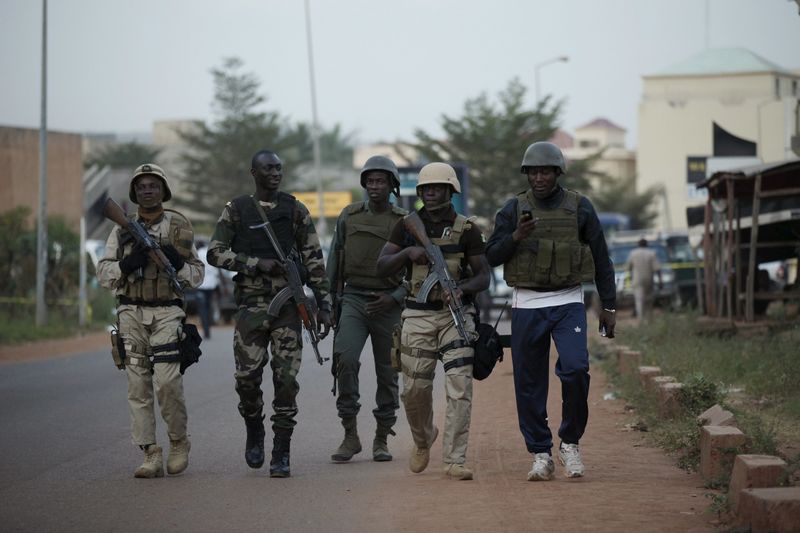By Emma Farge
DAKAR (Reuters) - The top U.N. official in Mali said on Thursday he would leave his post after just a year amid what sources said are difficulties implementing a peace deal and improving security in the north of the country.
The 10,000-strong MINUSMA force has suffered the highest rate of losses of any active peacekeeping mission and is the frequent target of attacks by desert jihadists still active two years after French troops drove them out of key northern towns.
In November, militants attacked a luxury hotel in the capital Bamako and killed 20 people, including many foreigners. Earlier this month, rockets hit a U.N. base in Kidal, killing three people and fired at the town of Gao.
U.N. Special Representative Mongi Hamdi will be replaced by Chad's former foreign minister and former head of the African Union Mission in Somalia Mahamat Saleh Annadif in January, sources close to the mission told Reuters.
"There were certain expectations of him (Hamdi) and it's not clear that he met them," said one of the sources, requesting anonymity.
Asked about criticism that he not improved security or implemented the peace deal, Hamdi told Reuters: "Implementation is happening and it is the common responsibility of everyone, including the Malian government ... We cannot do it for them."
It was unfair to blame MINUSMA for deteriorating security linked to jihadists since it had a mandate to keep the peace rather than enforce it, he said.
"I think I have accomplished my mission," the Tunisian added.
SKILL IN MEDIATION
Officials praised Hamdi's skills in mediation, culminating in the signing of a long-awaited peace agreement between rival northern armed groups and the Malian government in June.
But they said he has since struggled to implement it and improve overall security. MINUSMA does not have an anti-terror mandate, although it can fire on militants if it perceives an immediate danger.
"There is a fair element of apprehension about what's next," said a foreign diplomat in the country. Other officials in the country said they hoped that Annadif's experience in Somalia would prove useful in meeting Mali's security challenges.
Nearly 80 percent of Malians said they do not feel "sufficiently safe", according to a survey this year by the German foundation Friedrich Ebert Stiftung.
Jean-Herve Jezequel, senior Sahel analyst at the International Crisis Group, said that any candidate following Hamdi would face the same difficulties of a "vast and sometimes contradictory mandate". But he said new leadership might help.
"A new leader could give energy and help clarify the priorities of the mission. That's an important aspect for the Malian people," he said.
Islamist militants linked to al Qaeda seized the desert north of Mali in 2012 following a separatist uprising but were scattered by a French military operation the following year.

Jihadists have stepped up attacks this year on Western and Malian targets beyond their traditional desert bases.